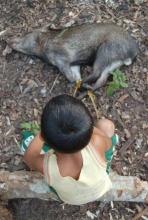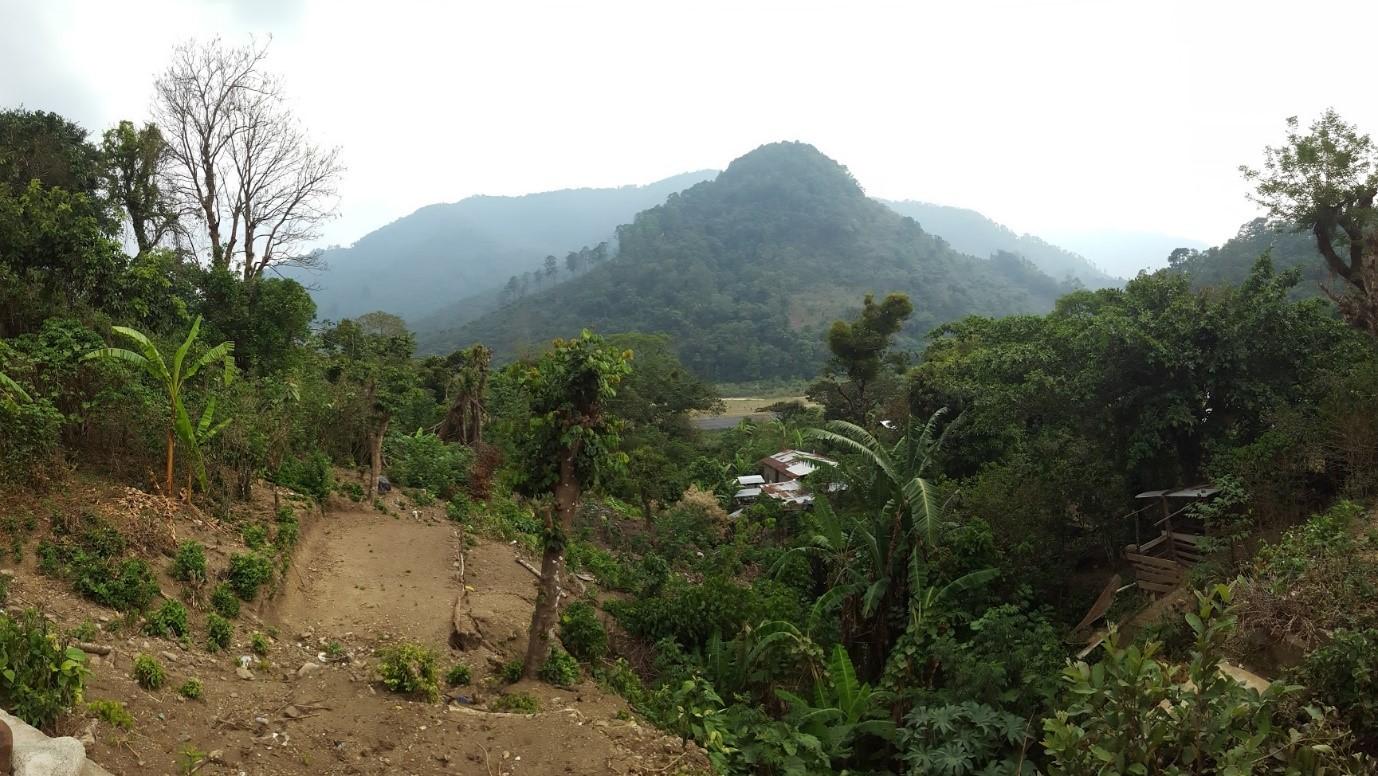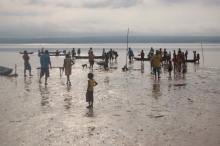Research summary
The aim of this research is to provide a comparative performance assessment of distinct conservation and development intervention strategies in the tropical forest frontiers of the global south. The different dimensions of impact assessment will include forests, food and livelihood (welfare, wellbeing and relational values) outcomes. A major effort will focus on capturing locally defined human wellbeing (HWB) and place-based relational values as part of the livelihood assessment, together with perceptions of intervention impact.
 The typology of environment-related interventions is three-fold with strict conservation and agricultural intensification interventions at the two extremes. Interventions that combine these approaches represent the third type. While strict conservation strategies may underperform due to a failure to incorporate the human dimension and needs related to resource use and management, so too might agricultural intensification interventions underperform through incentivizing agricultural activity or increasing the cost of conservation. Thus, coupled strategies that combine increased agricultural returns from the land (per unit area), with mechanisms for forest protection, are the suggested better option. Yet the possibilities of win-win outcomes are far from certain even with the coupled approach. Further, particular dimensions of impact evaluation are under-explored in conventional approaches, and include the non-material flows from nature to people (including relational values and place-based attachments to the land and landscapes), measuring impact on locally defined priorities for human well-being and quality of life and understanding how these impacts are distinct for particular user groups.
The typology of environment-related interventions is three-fold with strict conservation and agricultural intensification interventions at the two extremes. Interventions that combine these approaches represent the third type. While strict conservation strategies may underperform due to a failure to incorporate the human dimension and needs related to resource use and management, so too might agricultural intensification interventions underperform through incentivizing agricultural activity or increasing the cost of conservation. Thus, coupled strategies that combine increased agricultural returns from the land (per unit area), with mechanisms for forest protection, are the suggested better option. Yet the possibilities of win-win outcomes are far from certain even with the coupled approach. Further, particular dimensions of impact evaluation are under-explored in conventional approaches, and include the non-material flows from nature to people (including relational values and place-based attachments to the land and landscapes), measuring impact on locally defined priorities for human well-being and quality of life and understanding how these impacts are distinct for particular user groups.
When environment-related interventions modify the use, access and management practices of local resource users in landscapes, material and non-material elements of well-being and relational values may also be impacted. These relationships are not well understood and will be assessed using a mixed methods approach (e.g. questionnaires, life histories and focus group discussions) in interventions in Chiapas, Mexico and Pará, Brazil. The combination of quantitative and qualitative methods will enable triangulation between across methods and findings to inform our understanding of intervention impact.

 The locally prioritized, multiple dimensions of human wellbeing will be captured using the Global Person Generated Index – GPGI. The GPGI will be adapted to capture not only the priority constituents of human-wellbeing, but also to assess perceptions of intervention impact on these constituents. Likert scale items capture locally relevant place attachments and relational values that are held for the landscape, and perceptions of how these have been impacted across the interventions. The questionnaire will also capture data related to perceptions of intervention impact on forest change, food production and profitability, and livelihoods. Life histories and focus group discussion will enable a more in depth understanding of how these values and relationships have changed over time, with landscape transitions and intervention legacies. The majority of the site level fieldwork will be with local land users, however, project proponents and implementing agents will also be engaged to understand the diversity in how priorities for human well-being are understood across groups.
The locally prioritized, multiple dimensions of human wellbeing will be captured using the Global Person Generated Index – GPGI. The GPGI will be adapted to capture not only the priority constituents of human-wellbeing, but also to assess perceptions of intervention impact on these constituents. Likert scale items capture locally relevant place attachments and relational values that are held for the landscape, and perceptions of how these have been impacted across the interventions. The questionnaire will also capture data related to perceptions of intervention impact on forest change, food production and profitability, and livelihoods. Life histories and focus group discussion will enable a more in depth understanding of how these values and relationships have changed over time, with landscape transitions and intervention legacies. The majority of the site level fieldwork will be with local land users, however, project proponents and implementing agents will also be engaged to understand the diversity in how priorities for human well-being are understood across groups.
This research is a component of a larger research project: Assessing the Role of Forests and Landscapes in relation to Climate Change, Agricultural Production and Livelihoods. The broader project aims to assess interventions across the typology for their performance related to conservation, agricultural production, and livelihoods (including welfare, HWB and relational values). It will involve a remote sensing pan-tropical analysis, as well as site-specific measurements of agricultural production, biodiversity and livelihood outcomes.
